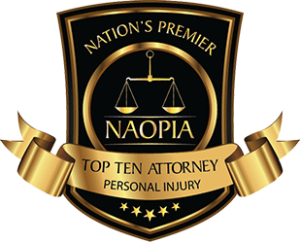Herniated discs, also referred to as bulged, slipped, or ruptured discs, are a common injury many car crash victims sustain. When diagnosed with a herniated disc, it means “a fragment of the disc nucleus [pushes] out of the annulus into the spinal canal through a tear or rupture in the annulus.” The annulus is the outer layer of a disc that serves as a cushion to the bones that form the spine in our back. When this happens, an individual often feels pain from the disc pressing on the spinal nerves, which can vary in degree.
While some individuals who suffer a herniated disc are able to get through their day with minimal pain and suffering, others experience severe pain and discomfort which impacts their ability to perform tasks at home and even at work. If you suffered a herniated disc after engaging in a car accident in Cedar Rapids, IA, then you may already have learned just how difficult life can be when living with this type of injury.
What are the common symptoms of a herniated disc?
Symptoms of a herniated disc differ from person to person. The American Association of Neurological Surgeons (AANS) says that it all depends on “the position of the herniated disc and the size of the herniation. If the herniated disc is not pressing on a nerve, the patient may experience a low backache or no pain at all, [but] if it is pressing on a nerve, there may be pain, numbness, or weakness in the area of the body to which the nerve travels.” Some common conditions that often develop as a result of a herniated disc include:
- Sciatica/Radiculopathy– When an individual suffers a herniated disc in their lower back, it can cause them to develop Sciatica/Radiculopathy which can cause them to experience one or more of the following symptoms:
- Pain, which has been described as being “sharp and electric shock-like.”
- Burning
- Tingling and numbness that radiates from the buttocks into the leg and sometimes into the foot, usually on one side.
- Some might experience severe pain when they stand, walk, or sit.
- Cervical Radiculopathy– If the herniation is located in the neck and the nerves compress, an individual might experience “dull or sharp pains in [their] neck or between [their] shoulder blades.” They might also feel “pain that radiates down the arm to the hand or fingers, or numbness or tingling in the shoulder or arm.”
What types of treatments are provided for those who suffer a herniated disc?
It all depends on the degree of the herniation. While some are able to undergo certain types of treatments that do not involve surgery, others are unable to endure the pain and elect to have their herniated disc repaired through surgery. Some types of treatments that are provided that do not involve surgery include:
- Nonsteroidal anti-inflammatory medication. Some physicians will treat a herniated disc with this type of medication generally when the pain is only mild to moderate, says the AANS. A doctor may apply this medication via an epidural steroid injection “under X-ray guidance to direct the medication to the exact level of the disc herniation.”
- Physical therapy. “Therapy might include pelvic traction, massage, ice and heat therapy, ultrasound, electrical muscle stimulation, and stretching exercises.” A physician may also recommend a patient take pain medication or muscle relaxants while undergoing physical therapy.
The AANS says that someone may be a potential candidate for surgery if:
- The pain limits their normal activity or impairs their quality of life.
- Progressive neurological deficits develop, such as leg weakness and/or numbness.
- A person has lost their normal bowel and bladder functions.
- They have difficulty standing or walking.
- They have tried medication and physical therapy but both proved to be ineffective.
- The patient is considered to be in good health.
Now, despite whether you need to surgery or not to repair your herniated disc, undergoing any type of medical treatment can be costly. In the event you have limited insurance coverage or no health insurance at all, you may not be able to afford all the care your physician has recommended which has resulted in you suffering from chronic pain. If this has interfered with your ability to work or enjoy your life in the manner you once were able to, now would be a good time to speak with one of our Cedar Rapids, IA car accident attorneys.
At Eells & Tronvold Law Offices, P.L.C., our attorneys have years’ worth of experience in litigating cases involving car accident victims and have helped hundreds of clients recover millions of dollars. If you would like one of our trusted car accident lawyers located in Cedar Rapids, IA to help you recoup money for your pain and suffering, medical expenses, lost wages, and more, contact us today at (319) 393-1020 to find out how we can help you.
You can reach Eells & Tronvold Law Offices, P.L.C. at:
1921 51st Street NE
Cedar Rapids, IA 52402
Phone: (319) 393-1020
Fax: (319) 393-4000
Website: www.eellsandtronvold.com







